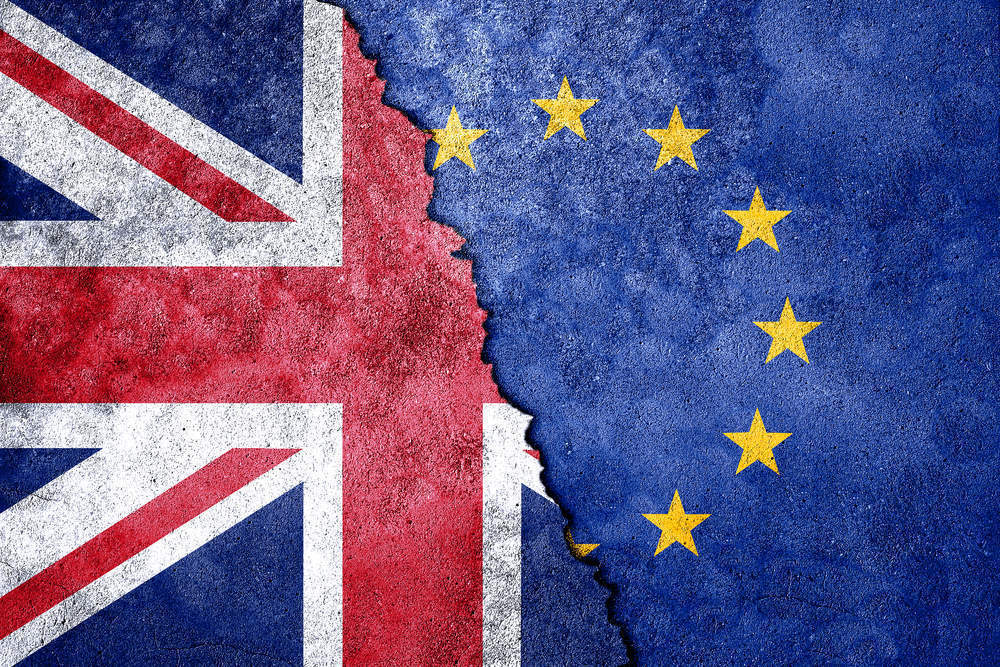
Britain’s decision to leave the European Union is proving to be one of the most divisive in modern politics. And yet, there is one thing that everyone seems to agree on – a no-deal Brexit would be disastrous for both sides.
With each passing day, the 29 March Brexit deadline edges closer, and with the UK and EU yet to agree on a number of key issues, the chance of a no-deal Brexit – where the UK would leave without a formal agreement on future relations in place – becomes increasingly likely.
It is clear that the situation would cause financial disruption to both the UK and the EU. However, the extent of that disruption is still up for debate.
Cost of No Deal Revisited, a new report published by research organisation The UK in a Changing Europe, sheds some light on the potential costs of a no-deal outcome.
“In the short term at least, considerable uncertainty and disruption will result,” the report suggests. “This would be an unprecedented mess, both politically and economically, and we’d be in uncharted territory, even with mitigations.”
So what would the cost of a no-deal Brexit be? Verdict has pulled some of the key findings from the Cost of No Deal Revisited report.
GDP will fall by 10% over the next 15 years
Leaving the EU without a free trade deal in place will cost the UK approximately 8% of its gross domestic product over the next 15 years, with cumulative growth falling form 25% to 17%. That is according to a detailed study conducted by the UK government, which looked at 57 economic sectors.
The report estimates that losses owed to Brexit could be costing the UK as much as £80bn annually by 2033.
However, these estimates assume that the UK secures positive agreements with other nations, such as the United States.
In reality, the impact of Brexit on GDP is likely to differ greatly from estimates, depending on the approach that the UK takes and how other nations respond to a no-deal Brexit.
Factors such as the UK’s ability to secure positive trade agreements with other nations such as the United States, the UK’s final stance on immigration, and the future implementation of trade deals with the EU, will all alter the final cost of Brexit.
Businesses face costs that they didn’t agree to
The uncertainty will be particularly worrying for British businesses that currently export goods to European Union member states, given that the UK’s participation in the free trade agreement is at risk.
Currently, as part of the EU Customs Union, British firms do not pay import tariffs on goods that arrive in other EU member states. Likewise, goods moving between two member states are not required to undergo custom checks upon arrival, which helps to keep transport costs and times down.
However, failure to reach an agreement on customs would push prices up. This is particularly concerning for parties that are currently engaged in long-term contacts to export items to the EU. Costs would go up and, depending on the terms of the contract, exporters would be forced to pay these extra charges.
While officials outlined allowances to avoid this in the initial Withdrawal Agreement, this would be voided in the case of a no-deal Brexit.
The Customs Agreement has the potential to cause chaos for UK-based businesses. Car manufacturer Honda has estimated that increased customs checks would cost the company £850,000 a year for every 15 minutes of delays. Companies will also have to shell out on additional administrative costs.
The UK in a Changing Europe estimates that the cost of producing a product could rise by as much as 15%.
Consumers will foot the bill
It goes without saying that it is the consumers who will foot the bill. In fact, the report states that failure to agree a trade agreement with the UK would likely generate significant revenue gains of about £13bn in the UK.
Businesses will increase their prices to cover the losses that they suffer as a result of Brexit, and consumers will be forced to pay more for the same goods.
However, a financial crisis isn’t a certainty
There is some good news. The report suggests that a no-deal Brexit would cause immediate disruption to a number of industries. However, the impact is unlikely to be severe enough to be disastrous.
“Sterling would almost certainly fall in the run-up to no deal and remain low, which would have macroeconomic impacts,
“But, with a floating exchange rate, this doesn’t in itself necessary constitute a crisis. Nor would falls in equity markets,
“And while it is possible, indeed likely, that the UK’s credit rating would be downgraded, recent experience suggests that this is almost entirely irrelevant.”
The report points to similar situations elsewhere, where the economy of other nations was able to recover despite huge disruption.
The recent Qatar diplomatic crisis is a good example of this. Despite Saudi Arabia and the United Arab Emirates ceasing trading with the Middle Eastern nation and cutting off its trade routes, Qatar has only suffered minor economic damage.
However, the report notes that “a severe recession, while not inevitable, is clearly a possibility”, should costs rise and spending fall as a result of increased business costs and product prices.
Essentially, nobody really knows what impact Brexit will have on the economy, or the extent of disruption that the UK and the EU will face. However, given the potentially catastrophic results of a no-deal Brexit, it is probably a scenario best to avoid.
“It makes sense to plan for, and indeed attempt to mitigate, the worst aspects of a chaotic Brexit,” the report concludes. “It makes much more sense to avoid such an outcome altogether.”







